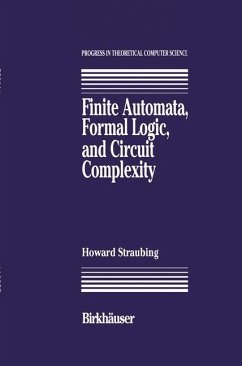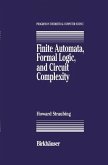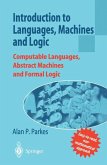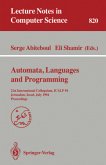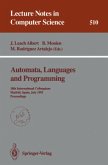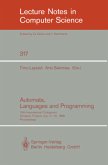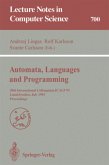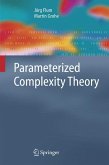The study of the connections between mathematical automata and for mal logic is as old as theoretical computer science itself. In the founding paper of the subject, published in 1936, Turing showed how to describe the behavior of a universal computing machine with a formula of first order predicate logic, and thereby concluded that there is no algorithm for deciding the validity of sentences in this logic. Research on the log ical aspects of the theory of finite-state automata, which is the subject of this book, began in the early 1960's with the work of J. Richard Biichi on monadic second-order logic. Biichi's investigations were extended in several directions. One of these, explored by McNaughton and Papert in their 1971 monograph Counter-free Automata, was the characterization of automata that admit first-order behavioral descriptions, in terms of the semigroup theoretic approach to automata that had recently been developed in the work of Krohn and Rhodes and of Schiitzenberger. In the more than twenty years that have passed since the appearance of McNaughton and Papert's book, the underlying semigroup theory has grown enor mously, permitting a considerable extension of their results. During the same period, however, fundamental investigations in the theory of finite automata by and large fell out of fashion in the theoretical com puter science community, which moved to other concerns.
Bitte wählen Sie Ihr Anliegen aus.
Rechnungen
Retourenschein anfordern
Bestellstatus
Storno

